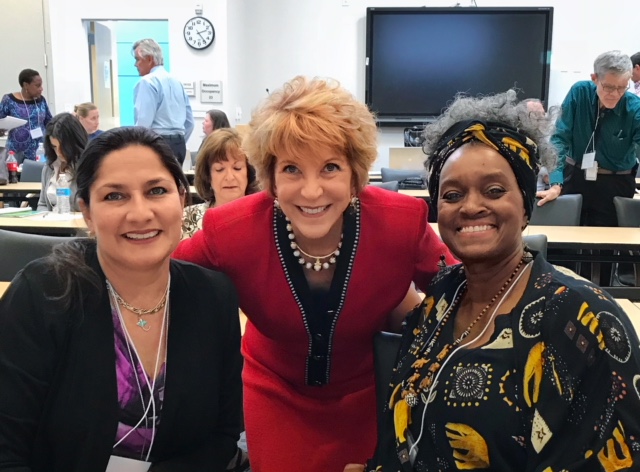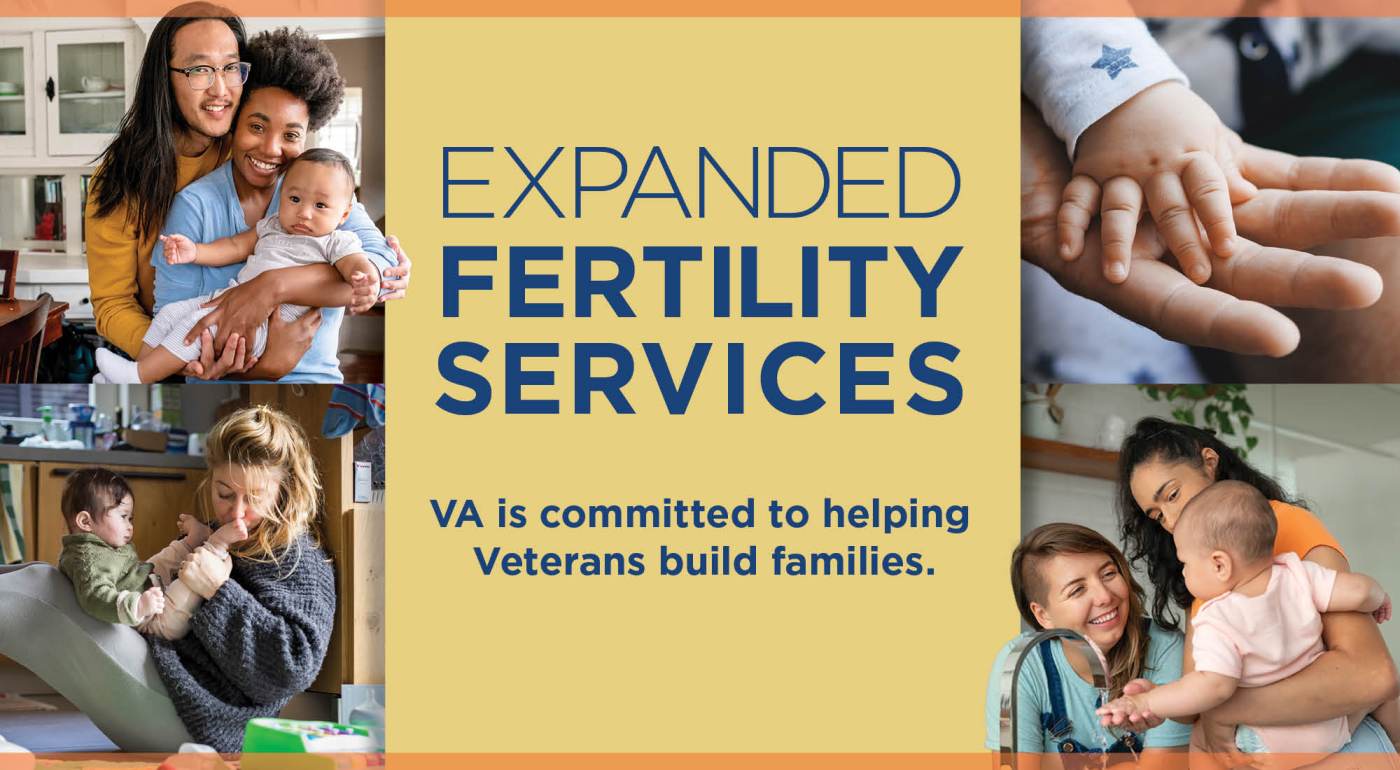
Pamela Powers, Chief of Staff for Veterans Affairs, has nearly 30 years of service and retired from the Air Force as a colonel on March 1, 2018. Her awards and decorations include the Legion of Merit and the Defense Meritorious Service Medal.
Editor’s Note: This article originally appeared on Military Times on May 1, 2019.
Anyone who thinks the Department of Veterans Affairs is an old boys’ club should meet some of the women running it.
I’m one of them.
The VA has a long history of both serving women and putting them in a position to lead, and we’re better positioned than ever to help our women warriors when they return home.
Women have played an important role here since before my great grandfather fought in World War I, when Veterans could get benefits from the VA’s predecessor, the Bureau of War Risk Insurance. By the time my grandfather was in World War II, we were the Veterans Administration, and more than 10 percent of our employees were women.
By the mid-70s, women made up more than half of our workforce. Today, under Secretary Robert Wilkie, women are running major components of the VA, which shows his commitment to serving women Veterans as they transition and seek care.
- Dr. Melissa Glynn heads up our Office of Enterprise Integration and is in charge of our modernization effort that will see the VA undergo the most dramatic evolution it’s ever seen.
- Cheryl Mason is chairman of the Board of Veterans’ Appeals and leads a team of more than 1,000 judges, attorneys and staff that makes decisions on appeals brought by veterans and their families.
- Dr. Lynda Davis is our chief Veterans Experience officer and works to make sure we’re on track to becoming the top customer service organization in the federal government.
- Karen Brazell is executive director of our Office of Acquisition, Logistics, and Construction, and oversees procurement and risk management for the VA, which is the largest integrated health care system in the country.
- Dr. Tamara Bonzanto is assistant secretary for our Office of Accountability and Whistleblower Protection, a new office that’s aimed at building transparency and public trust throughout the VA.
- Jacquelyn Hayes-Byrd is executive director of our Center for Women Veterans, which is celebrating its 25th anniversary this year and strives to make sure women can get the care and respect they deserve when they walk through our doors.
We rely on these women and thousands of others across the VA to make sure we’re in a position to help a growing population of women veterans. Over the last five years, women have accounted for 30 percent of the increase in veterans that seek out the VA for medical care.
That’s a challenge, but it’s one we’re meeting. We’re providing more medical services for women than ever before, including comprehensive primary care, gynecology, maternity care and mental health services.

Airmen stand at attention during a retreat ceremony March 30, 2018, on Kadena Air Base, Japan. An all-female formation was coordinated in honor of Women’s History Month, which brings attention to the accomplishments and achievements of women throughout history. (Staff Sgt. Micaiah Anthony/Air Force)
Studies show that women veterans are more likely to receive breast cancer and cervical cancer screening than women using private sector health care.
We’re taking special care to focus on women who are at risk of suicide. Preventing suicide among all Veterans is one of our top priorities, but we’re working hard to understand how the stress of a duty tour affects women differently and funding several studies that will shape treatment options.
We’ve also been working for several years now to change the culture and prevent all forms of sexual harassment in our medical centers. Those efforts are yielding results — we’re training our staff to intervene when they see harassment, and we are pushing to make sure women are comfortable coming to our clinics to get the care they’ve earned.
How do we know we’re making progress? Women have noticed the improvement and are voting with their feet.
The number of women choosing VA health care has tripled since 2000, when we served about 160,000 women Veterans. More than 750,000 women are benefiting from VA health care or other benefits.
That number is only expected to grow. Women are expected to make up about 10 percent of all U.S. Veterans today, but as women swell our military’s ranks, we’ll be seeing even more women at the VA in the years ahead.
Surveys show women like the changes they’re seeing. A recent study said 84 percent of women Veterans trust us with their medical care and are satisfied with the overall VA experience.
The VA is succeeding with women because women are having more input than ever before into how the department is run.
But don’t just take it from me — stop in at one of the open houses we’ll be hosting this year at VA clinics around the country to celebrate Women’s Health Week.
Come and meet the women who are taking care of our nation’s heroes.
This article originally appeared on Military Times at https://www.militarytimes.com/opinion/commentary/2019/05/01/meet-the-women-helping-va-work-for-women-veterans/ on May 1, 2019.
Topics in this story
More Stories
This month's Center for Women Veterans Book Corner author is Navy Veteran Kimberly Henry, who served as a Cryptologic Technician and Sexual Assault Victim Advocate from 2009-2019. She created "Warrior's Path to Healing: A 12-Week Empowerment Journal for Women Veterans."
Thinking about building a family or exploring fertility treatments? VA can support you with a wide range of services.
Report examines the input of over 7,000 women Veterans: They are happier with VA health care than ever before.






